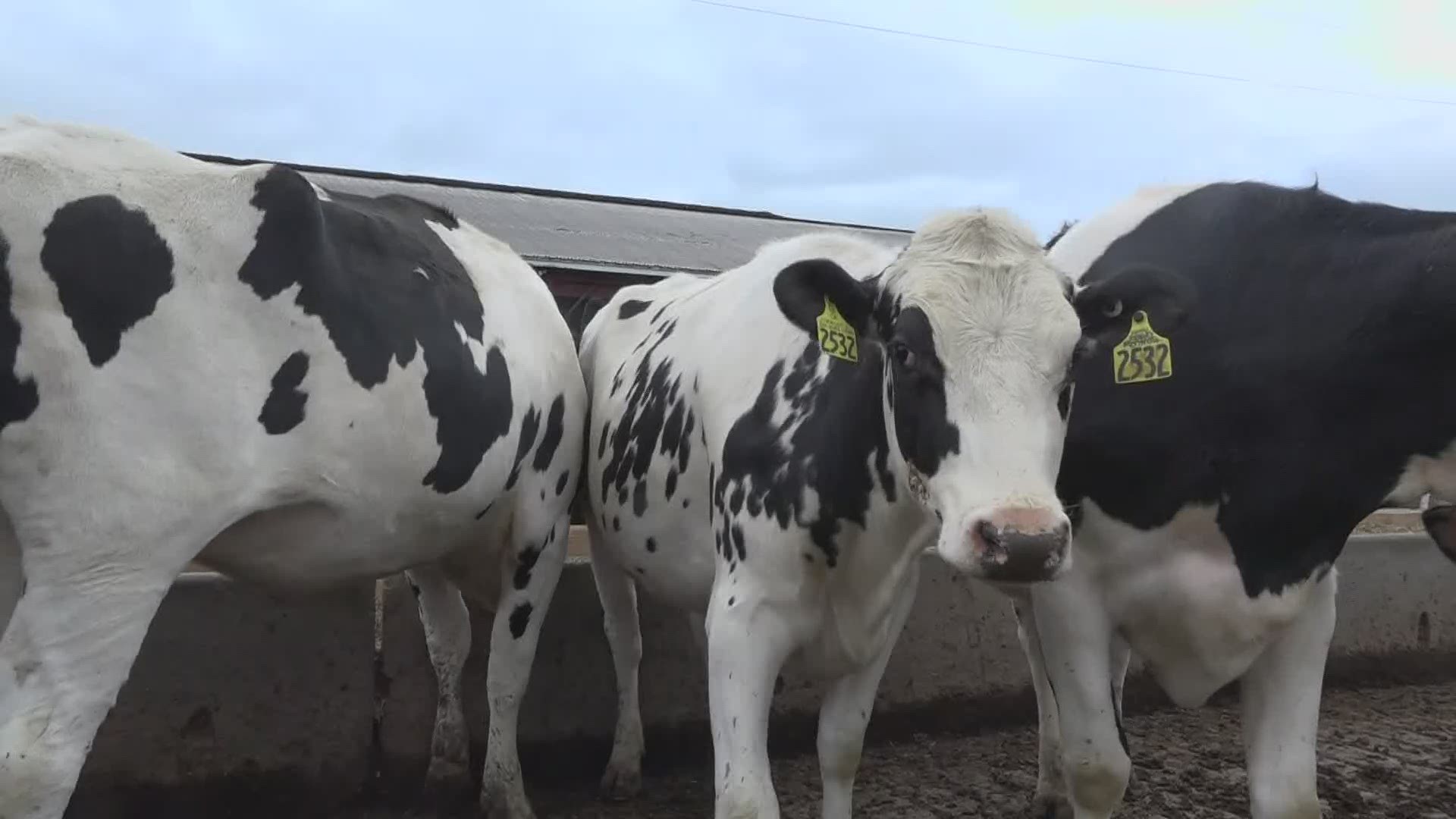AUGUSTA, Maine — Long before the new coronavirus existed, Maine dairy farmers were facing an economic crisis due, in part, to five years of record-low milk prices. Farmers were once hopeful that prices would improve in 2020.
Now, amid a public health crisis, dairy farmers are being forced to dump their milk. And their hopes are being diminished.
“Where we see the hang-up is that we actually have an oversupply,” Natalie Sneller, from Conant Acres in Canton, said.
It boils down to a supply chain issue. Sneller said although the processing facilities are doing their best amid worker shortages, "they just aren’t able to get all the fluid milk bottled and on the store shelves quick enough.”
“What we’ve seen in the current crisis," Sneller said, "is schools and restaurants and food service which traditionally makes up a huge part of our distribution chain, obviously those have been shut off and closed. So actually rather than a shortage of milk right now we have an abundance of milk.”
There is no place for all that milk to go. Farmers in Maine and across the nation are forced to dump it.
Sneller said she's crossing her fingers because she hasn't had to do this yet. However, she knows how frustrating it can be for her fellow farmers to watch a product they are proud to serve go right down the drain.
"It’s especially heartbreaking during a crisis when there are families who are hungry and would love to see that on their table."
The other concern right now, is who will care for the cows if a dairy farmer becomes ill with COVID-19, the disease caused by the new coronavirus.
That's where Rick Kersbergen comes in. He's an extension professor with the University of Maine Cooperative Extension and Sustainable Dairy and Forage Systems.
“A lot of Maine dairy farms are relatively small," he said. "Only one or two-person operations. And so if that person does get sick those cows still need to be milked twice a day, fed and taken care of.”
Right now he and others are compiling a list of volunteers to help step in, in case a dairy farmer gets sick.
“Dairy products are safe to consume," Kersbergen said. "Dairy cows are safe. The real concern is the dairy farmers who have to milk those cows.”
“I don’t think everyone realizes that a farmer on a day-to-day basis, they are of course a food producer, but they are a geneticist, a nutritionist, and a veterinarian and an agriculturist in the field," Snell said. "So it is quite a diverse skill set. It does require someone that has knowledge of animal husbandry and caring for animals to take that role on.”
NEWS CENTER Maine Coronavirus Coverage
RELATED: If you lost your job due to coronavirus COVID-19, here's how to file for unemployment in Maine



